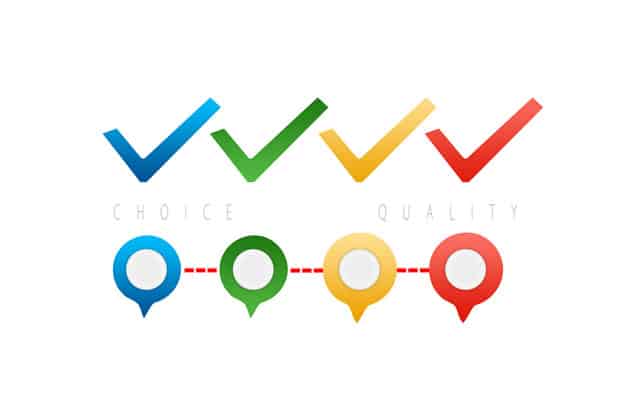
Quality is one aspect of a business’s products that consumers are most difficult to compromise on. Perhaps a business can get away with a sudden increase in price if consumers feel that the products are worth the money; they might even be given the margin of late deliveries if the customers demand that product is too high. However, the underlying idea is the quality which is an aspect that cannot be compromised upon.
So what is the one sure shot way for you, as an importer, to make sure that the products that you receive and then consequently send out in the market are meeting certain set quality standards? Is your shipment fulfilling the specifications and certain requirements that you asked for? Since it is very difficult for you to be physically present on the site to oversee the production process, one way that you can be sure of the product quality is through quality inspection: either by hiring your own team or a third-party inspection team.
But you do really need to incur the additional cost of the quality inspection? This is a question that you might ask yourself quite frequently. The idea of incurring an additional cost doesn’t sound very viable to many. Yet, why is there so much focus on quality inspection in the production process? The following are three key reasons why successful businesses all around the world deploy quality control across their work units.
1. Lower Costs
Yes, you heard that right. Even though employing a team for quality inspection will cost you money, the process of quality inspection will actually result in lowering the overall costs of the business. And lower cost means higher profit margins, so who wouldn’t want that? Let’s look at the ways through which quality inspection aids in lowering the overall cost of the business:
Prevention of costly product repair or rework
One of the first ways through which quality inspection contributes to lowering the cost of the firm is through dramatically decreasing the number of products that you have to repair or rework for the customer.
To explain this concept, keep in mind the following comparison:
Suppose that 20% of the products in your shipment turn out to have defected when you receive your delivery. Now that you’ve sold the products off because there was no quality inspection, the customers would come back with the faulty products to get them repaired. In this case, you will be liable to incur expenses in order to repair the faulty products.
Now, instead, imagine the second scenario where through quality inspection you find that a large proportion of your products defect. Since the products have not yet left the factory, you simply have to inform the manufacturer who will be responsible for repairing or reworking the product.
Even if in the above scenario you do not sell the products, the cost of repair or transportation back to the manufacturer will still be too high. Not only will you incur material costs of repair, if the customers receive faulty products then the firm’s integrity and the image will also suffer.
Limits Unsellable Goods
The second way through quality inspection will help reduce costs is by helping to reduce the number of unsellable goods. Unsellable goods would be those which cannot be reworked or repaired, that have a defect which deems them unfit for sale.
Suppose that when you receive a shipment from your manufacturer, you find that there is a critical defect which cannot be repaired under the given circumstances.
This means that you no longer can sell those products in the market; now you have an entire shipment of unusable goods at hand. Not only have you incurred the cost of ordering, manufacturing, and transporting these goods to yourself, but you have a shipment of unsellable goods at your hand that you must dispose of now.
If only you had hired a quality inspection team, this defect could have been detected in the early stages of production when only a few products would have been produced.
This would have saved you from wasting a large amount of raw material, time, and most importantly energy in the production of goods that added no value to your business- in fact, incurred you a loss.
Therefore, having a quality inspection team ensures that such circumstances do not take place and that all products manufactured are sellable and up to the standards that you have asked for.

2. More Satisfied Customers
Not only does product inspection benefit you on the cost side of the business, but it also successfully yields more satisfied customers. And as any smart businessman in this world knows, a satisfied client base inevitably results in a successful business.
In contrast, if your customers are unhappy with the products that they have purchased from you, chances are that not only would they not make a repurchase but in fact will spread the word around that they are unsatisfied from your business, resulting in loss of potential sales from any future potential customers.
As discussed above, product inspection leads to reduced costs for the business. In many cases, you might want to use this advantage to offer competitive prices to your customers, which would undoubtedly make them happy. But apart from reduced prices, how else can quality inspection help you create a more satisfied consumer base?
If customers know that the goods being delivered to them have undergone a quality inspection, they purchase the product with greater peace of mind that if they feel like they have to inspect each product themselves.
Products that have been inspected for quality are also less likely to have defects that the customer will need to return, which means increased convenience for the customers.
In addition to that, when there are no defects in the goods being finally sold this would mean that the customer’s expectations have been met. Always great news for any business. After all, the customer is king.
Customers Receive Goods on Time
Product quality inspection isn’t in place only to ensure that the final products delivered to the customers meet certain quality standards, but also to ensure that the actual delivery of the goods occurs on time. How do quality inspectors assure this?
Firstly, they are required to frequently visit the production site and report if any processes or tasks are behind schedule. If so, you can take it up with the manufacturers are inquire about the delays in the process.
Secondly, by reporting any issues in the quality of the products during the production stage, the inspectors make sure that the problem is corrected immediately and not spread across the entire shipment. This would be especially helpful when a problem is discovered that would have been difficult to repair later on, causing a delay in the delivery of the goods to the customer.
This way, product quality inspection ensures that consumers not only receive products that they asked for, but also receive them when they asked for it. Timely delivery of products is a huge plus point for any business.
3. Improving Supplier Relations
So far we have discussed how quality inspection helps you (the importer) and the consumer. However, the third party in this transaction is the supplier, who will also benefit from having a quality inspection team oversee their work.
Now the obvious question that may arise is, how? Why would a supplier want to allow a team of individuals to interfere with the working process and examine the steps and products produced in the factory? The obvious answer is that only those suppliers would show resistance who have something to hide. If not, what is the harm in allowing a team to oversee the production process?
Screen Potential Suppliers
When choosing a supplier for your business, it is always a good idea to inform the supplier about your intention to inspect the products before shipment so that there are no hurdles later on in the way. When you state explicitly that you would want to inspect the products, the reaction of the supplier will help you differentiate a good supplier from a bad one.
If the supplier understands your desire to meet quality standards nd plans to manufacture products that will help you achieve those standards.
Then he should have no reservations with having the products inspected before shipment.
However, if the supplier does not plan to fully meet the requirements and perhaps has something to hide in this transaction. There would be some resistance to the idea of quality inspection- either by a third-party or your own staff. If the supplier shows some signs of being uncomfortable with the idea, you might want to switch to another supplier.
So proposing the idea of quality inspection right at the beginning of the contract will help you choose the right kind of suppliers that would benefit you in the long run.
Greater Accountability and Transparency from Suppliers
You may want to employ some legal framework in order to protect yourself from any frauds. OR deals where the supplier delivers subpar products.
You can do this by making use of the following documents:
- A detailed QC checklist for your product: this outlines your product specifications, packaging requirements, any required on-site testing procedures for QC and more.
- Your purchase order (PO), where you’d normally include details about pricing and a breakdown of unit quantities per SKU.
- A vendor guide or “vendor agreement”, where you might formally outline expectations that include any chargeback’s. Or other financial penalties dealt with suppliers that don’t comply.
These documents will make sure that in any case of a dispute regarding any detail of the transaction. You hold written documents needed to take the supplier to court if the disagreement cannot be solved on your own.
Another major advantage of quality inspection prior to shipment is that you would be aware of the quality of the products that you are receiving. Suppose you receive an order with over half of the products with damaged lids. Now the question arises as to whether the products damaged when they shipped or before that.
If it were up to the suppliers, no supplier would want to accept the responsibility for damages. However, if there was a thorough product inspection carried out prior to the shipment. Then any damaged products would be reported to you beforehand.
This would help you recheck the quality upon arrival- making the supplier more accountable regarding the quality of the products that he is shipping to you.
Conclusion
As can be seen from the above discussion, product inspection is a process that brings benefits to the business in multiple forms- ranging from lower costs to more satisfied customers and possibly better supplier relations.
Even if your firm does not have its own product inspection staff, it is a good idea to look into any third-party inspection teams available so that your business can flourish according to the requirements set by you.
